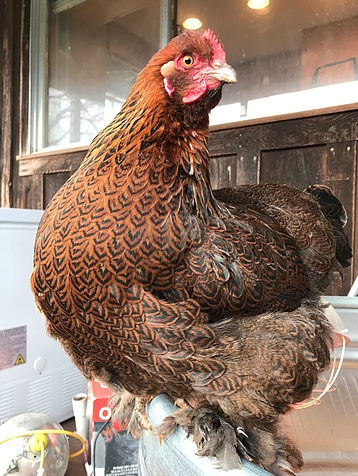
Tips + Tricks
Battling Fowl Pox | Home Remedies for Sick Chickens
I am in no way a veterinarian, and I urge you to consult with a veterinarian for any medical help your chickens may need. It is important to confirm the types of illnesses to be able to assess possible treatment methods. Many avian illnesses can display similar symptoms so it’s important to understand what you are dealing with. That being said, here are some home-remedy tips which have helped us manage chicken illnesses.
As an Amazon Associate I earn from qualifying purchases.
Well folks, it happened. My chickens have finally succumbed to illness after a long, uneventful fall and winter! Unfortunately, chickens are prone to a long list of awful illnesses, some which are a permanent problem for a flock and some that can be resolved more easily. Thankfully for us, the issue we are battling right now is Fowl Pox which will hopefully with resolve itself with some support.
Fowl Pox is a virus, like chicken pox that humans can get. Humans cannot contract fowl pox. Fowl pox can’t be cured with antibiotics, much like how the common cold virus cannot. In most cases the chickens will just have to ‘ride it out’. Fowl pox can, however, make birds more susceptible to secondary infections which may be treated with antibiotics. But before dosing your birds with antibiotics at every turn, consult with a veterinarian to confirm what illnesses are plaguing your flock.

A couple weeks ago one of my birds became very ill overnight. One day she was fine, the next she was having a very hard time breathing, and was huddled over in the coop not eating or drinking. I separated her to try to figure out what was wrong, but she was struggling very hard. She could barely breath and she was almost unresponsive. I made the tough decision to euthanize her.
I like to see me losing that chicken as a blessing in disguise, because I met the wonderful team over at the Texas A&M Diagnostic Poultry Lab in Gonzales, Texas. This place is awesome. I was very concerned that this bird would spread some horrible illness to the others, and worst case scenario, I would have to depopulate the entire flock. So in everyones best interest, I decided to call over to the Lab and see what their recommendation was. They were helpful and knowledgable, and told me I could bring in the bird for a necropsy. Within the day the head veterinarian called me to let me know his findings. Very quick turnaround!
He confirmed the bird had wet pox, a form of fowl pox. Fowl pox can either be dry, wet, or both. Dry pox presents as scabby lesions on the bird’s face or comb. They eventually turn black and fall off. The wet pox variety causes lesions in the trachea, causing respiratory distress and trouble eating and drinking. When he opened the bird up he immediately saw the internal lesions and let me know right away.
After this was confirmed I checked the whole flock for any black scabs or mouth lesions and only saw one rooster with a mouth sore. He was otherwise totally normal acting and didn’t seem phased by the minor bump inside his mouth.
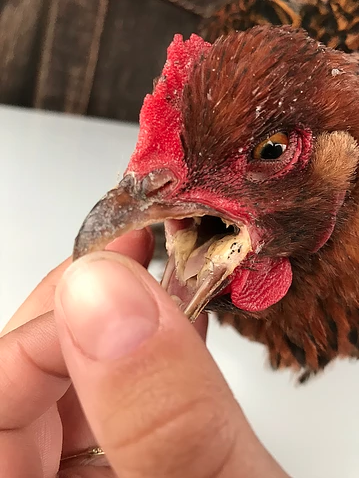
But this morning, I saw a young cochin pullet fluffed up sitting by herself in the yard. I immediately went over, opened her mouth, and discovered the large whitish yellow lesions crowding her mouth. So gross, I know. In a panic I carried her inside and set her up in the chicken ICU.
Not being a huge advocate for pouring antibiotics on everything that coughs or sneezes, I didn’t have any on hand. Since pox is a virus, I’m trying to focus on keeping her warm and comfortable, offering some extra nutrition and home remedies. And allowing her immune system to do its job. Once a chicken has had and recovered from fowl pox, they will be immune.
Since I don’t have any baby chicks right now, our big metal chick brooder with a heat lamp is free real estate for chicken ICU patients. I plopped this chicken down under the heat lamp and went to work assembling her sick bay.
Chicken water elixir
Oregano oil + unfiltered apple cider vinegar + raw crushed garlic
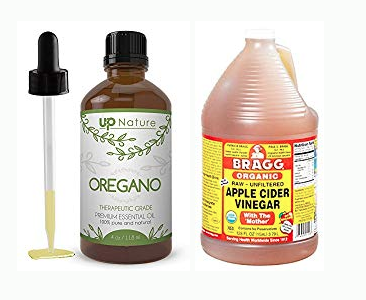
Some large poultry farms are beginning to use oregano with their chickens! It is said to have antibiotic and immunity boosting properties. Just check out this article from Countryside Network!
Apple cider vinegar is also one of those natural products you will see recommended a lot with chickens. There are people on both sides of the ‘natural’ spectrum. Some swear by these holistic remedies and some others will say that it’s unnecessary and chickens need to survive on their own without added help. It’s up to you to decide and raise your own birds. I don’t always use these things, but if there is a bird that needs an extra boost I don’t see any harm in giving them as much help as I can without using antibiotics.
Garlic has been used for ages in improving health, and those practices are no different for chickens! I simply crush a clove of garlic on the flat side of a knife blade a plop it into the water.
Instructions:
You will need to add the oregano oil, apple cider vinegar (a brand like Bragg’s is great because its unfiltered and unpasteurized) , and some garlic to water.
I use raw garlic because I always have it around but you can also use granulated garlic.
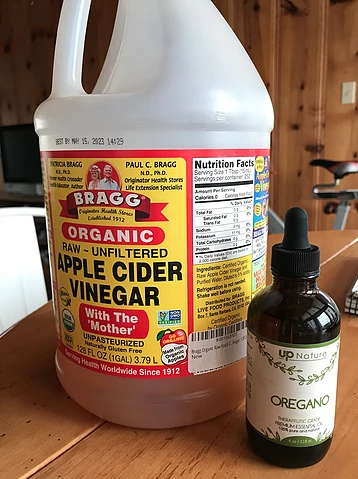
For a small dish of chicken elixir (like my 1 hen in ICU) add 1 drop oregano oil, 1 tsp of apple cider vinegar, and 1 smashed clove of fresh garlic (it will be floating around in the water) to about 2 cups of water. Your chicken will smell like a delicious Italian restaurant but she will thank you!
You can adjust this recipe for a gallon of water as well (if you want to boost the whole flock) – the recommended amount of vinegar is 1 tablespoon per gallon. I would add about 5 drops of oregano oil (it’s really strong!) and 3-4 smashed cloves of garlic to this increased volume.
As for nutrition, a scrambled egg or even a nice runny golden raw egg yolk can perk up even the most lethargic of chicks. I have to give credit to my wonderful friend Deborah for recommending the raw egg yolk trick. It totally revived a chicken the other day that was the unfortunate and unwilling recipient of puppy play time. I was astounded at how quickly she perked up after devouring some nutritious yolk!
My favorite trick for preparing a quick egg is to crack it in a mug, scramble it with a fork, add a couple tablespoons of oatmeal, a couple tablespoons of water, mix, and microwave for about 45 seconds to 1 minute. A nice, warm, rib sticking meal for a weak chicken!
And there you have it. A few helpful tricks for helping an ill chicken. Noticing an illness as soon as you can is the best way to manage. Many times it will be too late to revive a bird and bring it back, believe me, it has happened. As unpleasant as this part of raising any species of livestock is, it’s a reality. I try not to beat myself up about it – but sometimes you can’t help but feel to blame! Just do your best, offer comfort to your ill animals in the form of warmth, nutrition, and medicine when it makes sense, and try to prevent any illnesses from happening in the first place with good bio-security measures.
Until next time!
Olivia

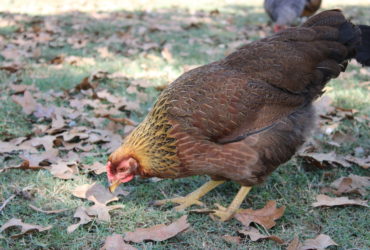
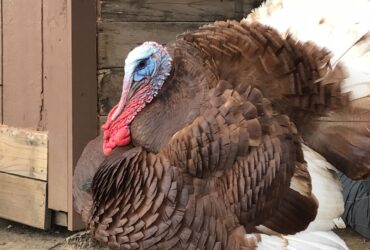

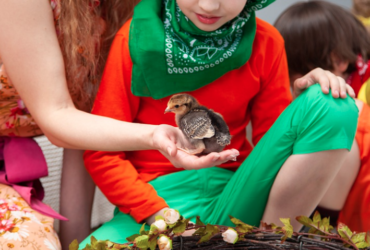


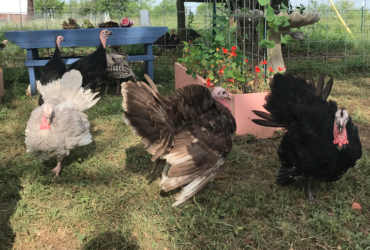
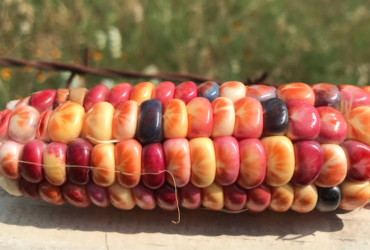
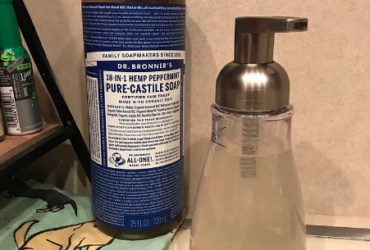

7 Comments
Amon
I like it
Elizabeth
I am battling the same issue (Mosquitoes have been off the chars BAD here in NC this year!). How did it turn out for your flock? Did you find out if you had to depopulate the flock? Can you hatch eggs from hens that had the illness previously, but recovered?
admin
Hi Elizabeth, usually only a small number of them get it so bad that they pass away or need to be euthanized. This year I had turkeys from a breeder in the midwest and it hit them hard. Probably because their parents were never exposed to it and didn’t pass on antibodies. The chickens I hatched here and whose parents had it the year before didn’t show any signs or had it extremely mildly. I think we had to put 3 of the turkeys down but that it out of my flock of almost 200 chickens and turkeys. Most of them get it very mildly and then recover. Once they recover from it they will have immunity. Some can be carriers that can reinfect other, unexposed chickens/turkeys later on, but I’ve never had that happen. It always seems to be related to weather.
Rachelle
can you use oregano spirits in place of just oil? That is all I have on hand, will I end up with drunk chickens?
admin
I haven’t tried that. If it has alcohol in it I wouldn’t.
Elizabeth
Hi! Thank you for this advice, I don’t know much about chickens but my mom has some baby chicks that hatched about a month ago and 2 of them developed what I now suspect is fowl pox in the area around their beaks, 1 passed away about 2 weeks ago at the same time that the 2nd chick started getting it. I was unsure of what to do and started googling and found your article. I’m going to try it out and hope it works. With the chicken elixir, do I apply it to the affected area? And how do I feed the chick the yolk?
admin
The elixir is meant to be added to their drinking water. If they don’t seem interested in drinking, you can drop a few droplets into their beak to encourage them. Normally I just try to encourage the chicken to eat on their own, but you could also try to mash up the cooked egg yolk in some water to make a slurry and drop it into their beak like that.